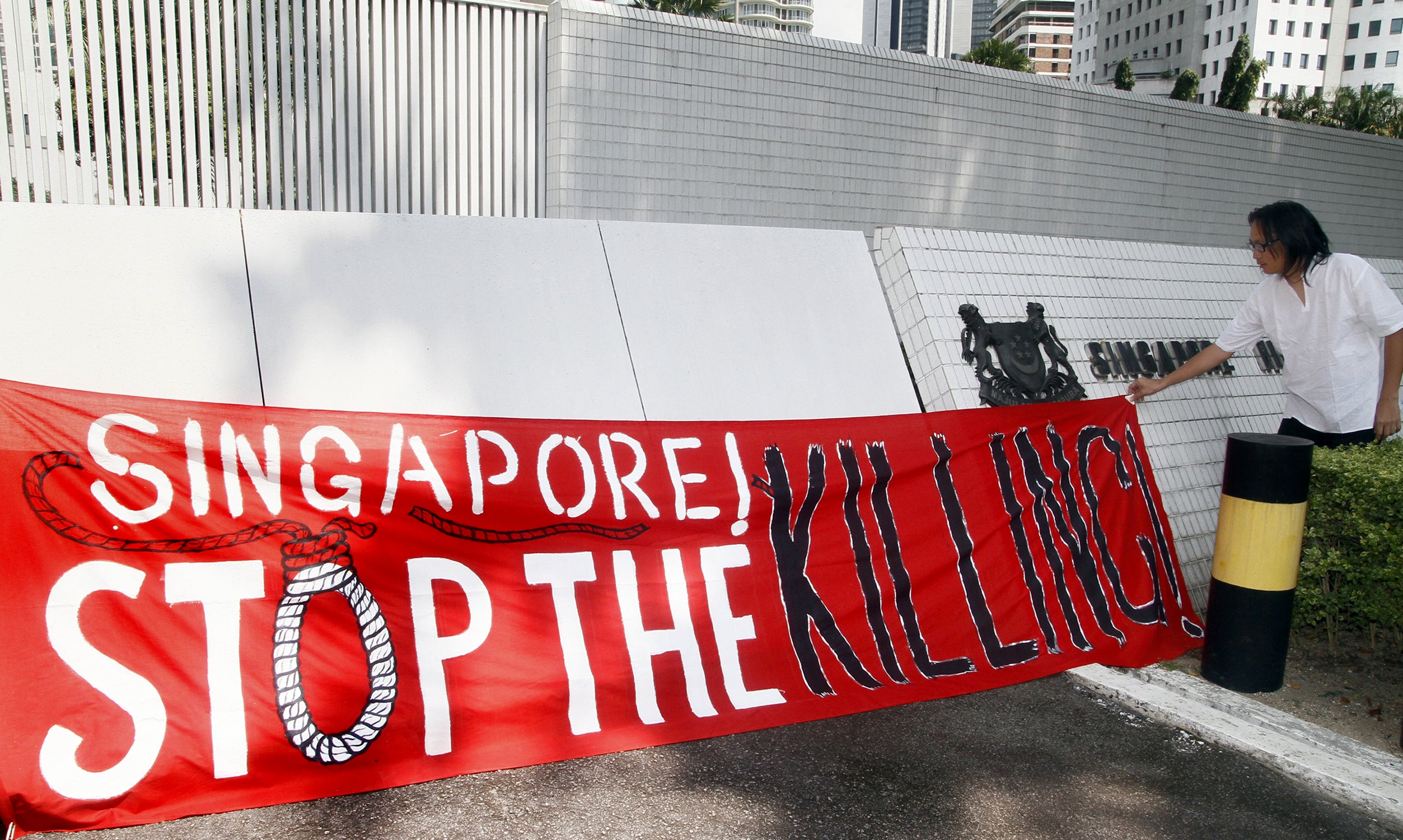Singapore must urgently halt planned executions of two low-IQ drug mules
Roslan bin Bakar and Pausi bin Jefridin are scheduled to be hanged today, writes Amanda Clift-Matthews


Two men scheduled to be hanged in Singapore frantically raised $20,000 today buying them one more day of life.
The Court of Appeal granted a temporary reprieve while an urgent action contesting the legitimacy of their executions was heard – but only on the condition that 20,000 Singaporean dollars be paid into court to cover the state’s costs. That action was dismissed this afternoon when the lawyers representing the men were ordered to pay the state’s costs personally.
A further motion has been filed on their behalf, despite the risk of more punitive costs, and is expected to be heard first thing tomorrow morning. If the motion fails, it is unclear whether the executions will proceed immediately. But past actions of the Singaporean Prison Service in the case of Kho Jabing suggest that it could be within a matter of hours.
Singapore signalled a clear intention to resume executions of death row inmates after a hiatus of more than two years when Roslan bin Bakar, a Singaporean national, and Pausi bin Jefridin, from Malaysia, were informed late last week that they were to be hanged imminently.
The scheduling of Roslan’s and Pausi’s executions follows a similar attempt in November last year to execute intellectually disabled Nagaenthran K Darmalingan. Nagaenthran’s case drew worldwide criticism, not least from the UN, which said that execution of the intellectually or psychosocially disabled is against international law. Roslan and Pausi are also said to possess subnormal IQ levels. However, the Singapore courts previously ruled that their low intelligence did not reduce their responsibility for the offence.
Roslan and Pausi were convicted in 2010 of trafficking methamphetamine. Singapore law permits a sentence of life imprisonment and caning instead of death for mere drug couriers. But the criteria are strict. To qualify, the prosecution must grant a “certificate of substantial assistance”. Certificates are granted where the prisoner’s cooperation has led to identifiable disruption of other drug trafficking activities. Without it – as in Roslan’s and Pausi’s case – a death sentence is mandatory.
Harsh penalties are justified by the Singapore government as a necessary deterrent in its war on drugs. But the government has never produced any empirical evidence that such penalties have the desired deterrent effect. In conjunction with this, suspects arrested for drugs offences have minimal due process rights, so that prisoners can be denied access to legal advice for weeks. No empirical evidence has been produced to show that limiting suspects’ rights ensures more guilty persons are convicted.
To keep up to speed with all the latest opinions and comment sign up to our free weekly Voices newsletter by clicking here
Roslan is part of the Malay community, which makes up a very small fraction of a population in Singapore that is largely Chinese. Last year a legal action by death row inmates identified that a significant majority of Singaporeans sentenced to death for drug trafficking offences over the last decade have been ethnically Malay. The Attorney General denied that there is any discrimination, direct or indirect, in the investigation and prosecution of drug offences in Singapore.
The dismissal of such a claim is unsurprising. In Singapore, criticism of the government is not well-tolerated and lawyers with anti-death penalty agendas can be penalised. Transparency – which might put fears of any bias or prejudice to rest – is not part of its culture. Numbers of persons arrested for drugs offences are not released and policies on charging decisions are not made public.
Singapore’s government would no doubt credit its general zero-tolerance for drug offences and its authoritarianism as being responsible for it being the low crime, first world nation that it has become; and citizens are led to believe that if the government relaxes its grip, instability and disorder will surely follow. But the benefit – let alone the acceptability – of executing intellectually disabled, low level drug mules from marginalised communities has never been specifically explained.
Amanda Clift-Matthews is a barrister and former in-house counsel for the Death Penalty Project



Join our commenting forum
Join thought-provoking conversations, follow other Independent readers and see their replies
Comments